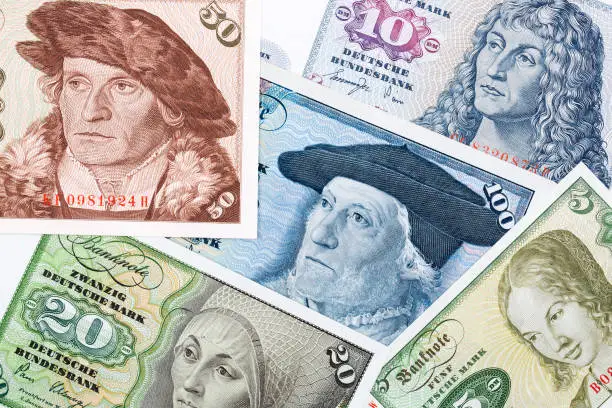To turn the planned economy of the GDR into a market economy, there was no blueprint, only the wish to do so. The job was awarded to the Treuhand Privatisierungsagentur.
In the summer of 1990, the Treuhandanstalt (Treuhand for short) was established to manage the vast number of former state-owned companies in East Germany. These companies, employing roughly four million workers, awaited integration into the newly unified nation. While Treuhand’s legacy is often associated with success, the human stories behind the numbers reveal a complex mix of triumphs, struggles, and the dramatic challenges of transforming an entire economy.
Chairman Detlev Carsten Rohwedder outlined the direction that the agency was taking in no uncertain terms. During the process of privatizing the GDR economy, he planned to use the proceeds generated to cover the costs incurred. It has been said that the ‘whole thing’ is worth 600 billion German marks.
Despite this, by the time the Treuhand collapsed five years later, 300 billion marks of debt had accumulated.
The project, however, was never completed by Rohwedder. He didn’t even have a full term in office before he was shot. Since the murder, its assassin has remained elusive, but the Red Army Faction (RAF) is widely believed to have carried out the attack. Her successor, Birgit Breuel, took over the job and approached it in the same way her predecessor had.
Economic collapse
A grave overestimation of the GDR’s economy soon became apparent. Overnight, the East and West currencies matched their values, despite the latter being worth four times more. The University of Applied Sciences (HTW) in Berlin’s Jan Priewe believes that the move that saw wages from 1,000 East marks to 1,000 West marks was a precursor of the end of the GDR economy.
Priewe said that income was too high when measured against company productivity, but too low when compared with the prices in unified Germany, adding that wages in GDR companies would soon increase.
Due to high prices and consumer unpopularity, their products were ultimately overpriced and their companies closed. A third of the East’s gross national product was lost within months.
Eastern Germany’s economic situation prevents companies from selling despite serious efforts. State-owned holding companies could only unload the Treuhand agency by selling them at subsidized prices. The Treuhand was an easy target for hustlers since it was eager to get rid of what it was holding. A “GDR clearance sale” was mentioned when there were numerous small and medium companies that fell into dubious profiteers’ hands.
Treuhand took a lot of heat
This nation has experienced deindustrialization that had never been experienced before. As people struggled to survive, unemployment soared to 20 percent and dramatic labor disputes became regular occurrences.
A potash mine in Thuringia that had supported the community of Bischofferode for decades was closed in 1990, taking the jobs of 1,000 workers. The remainder of the 700 was laid off three years later. Some of the miners went on a hunger strike rather than follow them into the pit.
Conclusion
The Treuhandanstalt’s work in privatizing East German companies remains a topic of debate. While it achieved the monumental task of integrating a planned economy into a market system, the human cost was significant. Deindustrialization, unemployment, and social unrest marked the transition period.
Looking back, questions linger about the effectiveness of the approach. Could a slower, more planned privatization have yielded better results? Treuhand’s story serves as a reminder of the immense challenges involved in economic transformation and the importance of balancing economic goals with the well-being of the people impacted.
FAQs about the Treuhandanstalt and East German Privatization
1. What was the Treuhandanstalt?
The Treuhandanstalt, often shortened to Treuhand, was a government agency established in 1990 to oversee the privatization of former state-owned companies in East Germany after reunification.
2. What were the challenges of Treuhand’s work?
Treuhand faced several challenges:
- Transforming a planned economy into a market system with no clear blueprint.
- The vast number of companies needing privatization (employing millions of workers).
- The underestimation of the economic difficulties in East Germany.
- Balancing competing goals like economic efficiency and social stability.
3. What were the criticisms of Treuhand?
Critics argued that Treuhand:
- Caused high unemployment through rapid closures and deindustrialization.
- Sold companies at undervalued, enriching some while hurting others.
- Didn’t prioritize saving jobs or supporting workers during the transition.
4. Were there any successes with Treuhand?
Despite the challenges, Treuhand did achieve some successes:
- Successfully integrated a large number of companies into the West German market.
- Saved jobs in some companies by finding viable buyers.
- Paved the way for economic growth in Eastern Germany in the long term.
5. What is the legacy of the Treuhandanstalt?
Treuhand’s legacy is complex. It achieved a monumental task but came at a social cost. It serves as a reminder of the difficulties of economic transformation and the need for careful planning and consideration of human impacts.
Read More: Fast Company Career

Leave a Reply